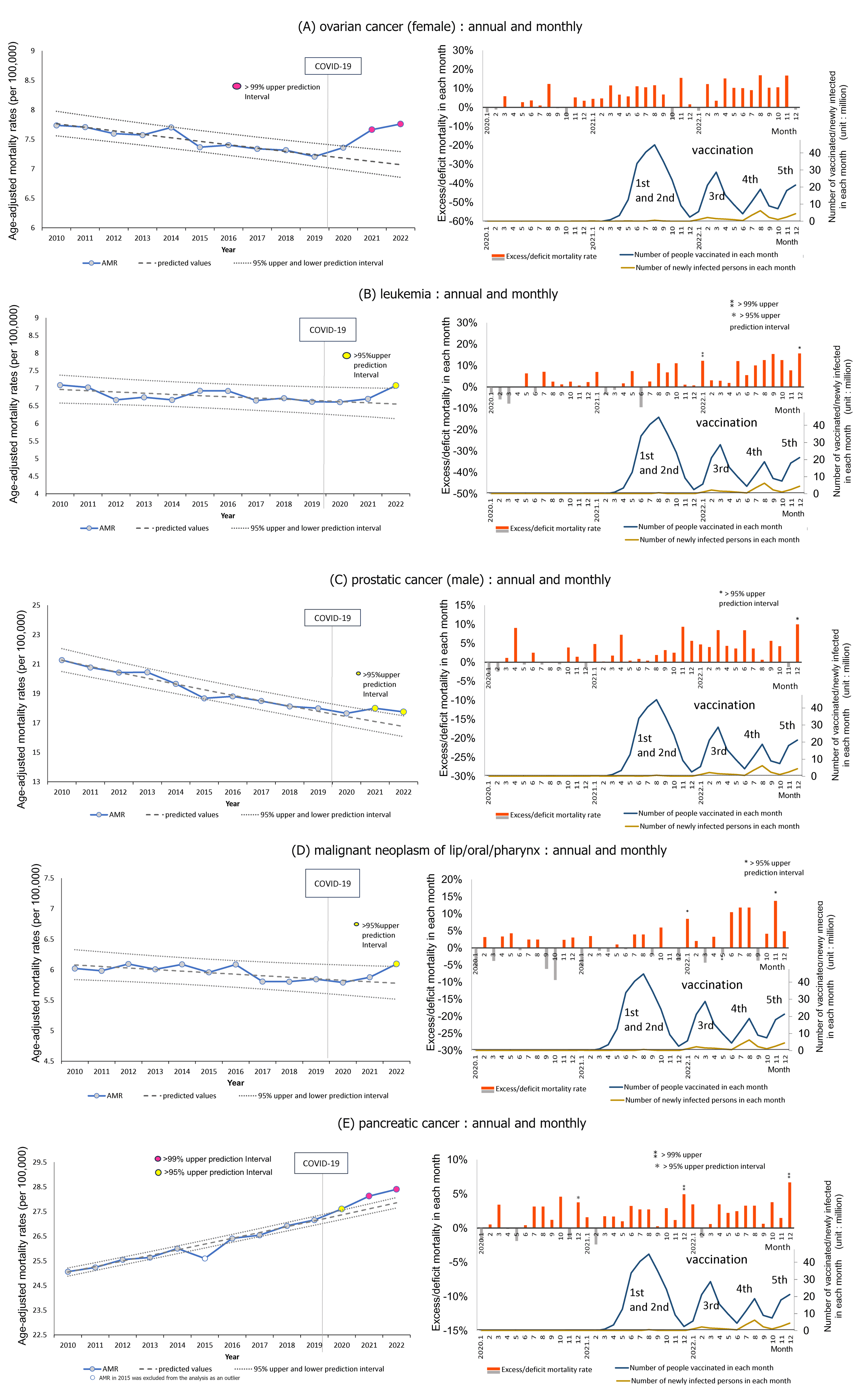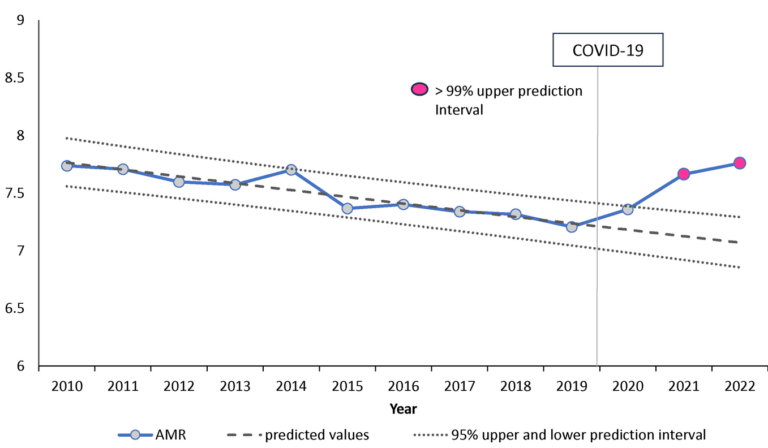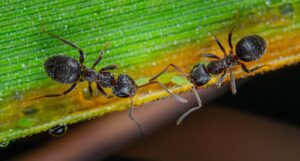Cancer death rates rose in Japan in 2022 after two-thirds of the population had three or more doses of an mRNA Covid vaccine, and sharp increases in certain types of cancers may be due to the mechanisms of those vaccines, a new study has shown.
A peer-reviewed study by Japanese researchers published on Cureus on April 8 used official statistics from Japan to compare age-adjusted mortality rates (AMRs) with predicted rates, and found statistically significant increases i 2022, after the mass vaccination of 68% of the population with a third mRNA-lipid nanoparticle (mRNA-LNP) shot.
“Japan has several characteristics that make it ideal for analysing the impact of the pandemic on cancer mortality rates, including its large population of 123 million, availability of official statistics, and the high 80% accuracy rate of death certificates according to autopsy studies,” the authors wrote.
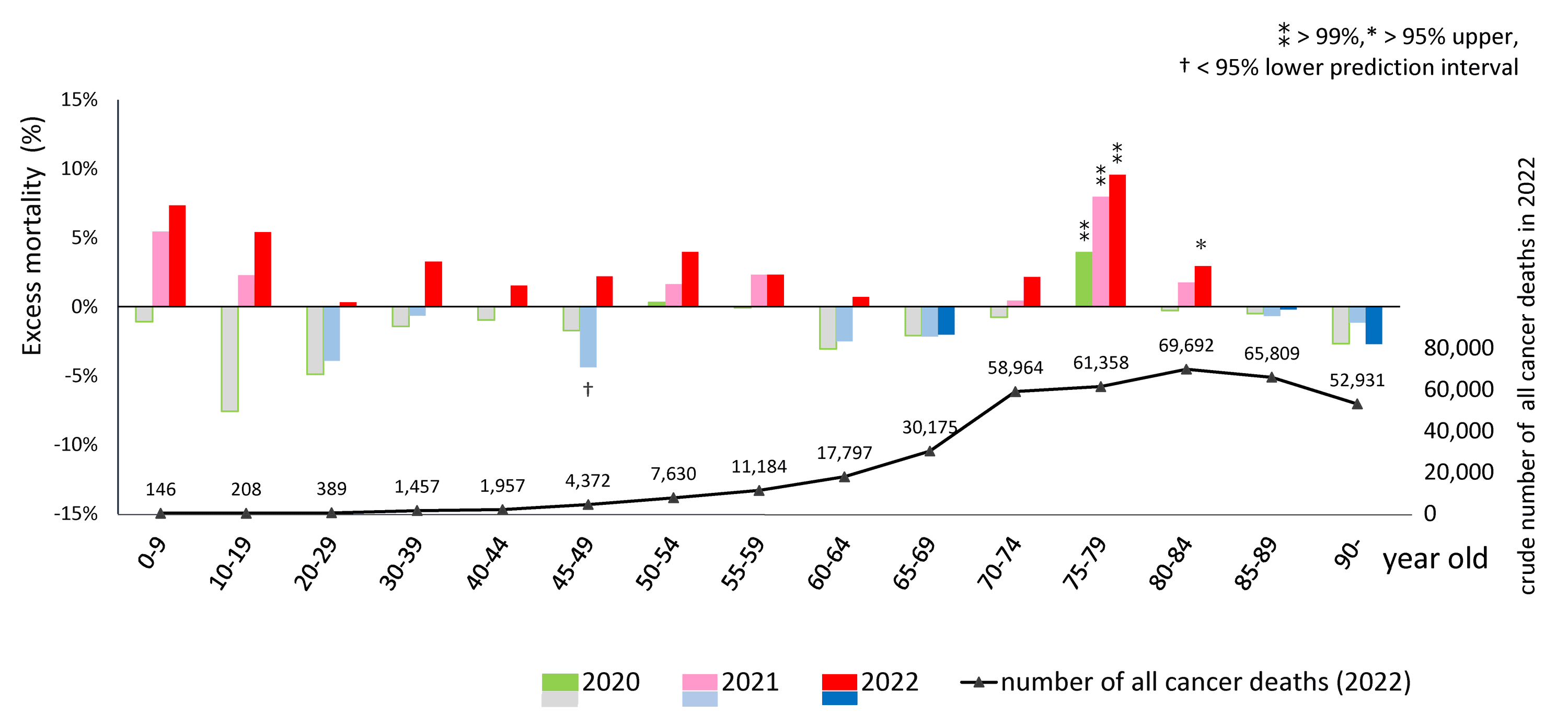
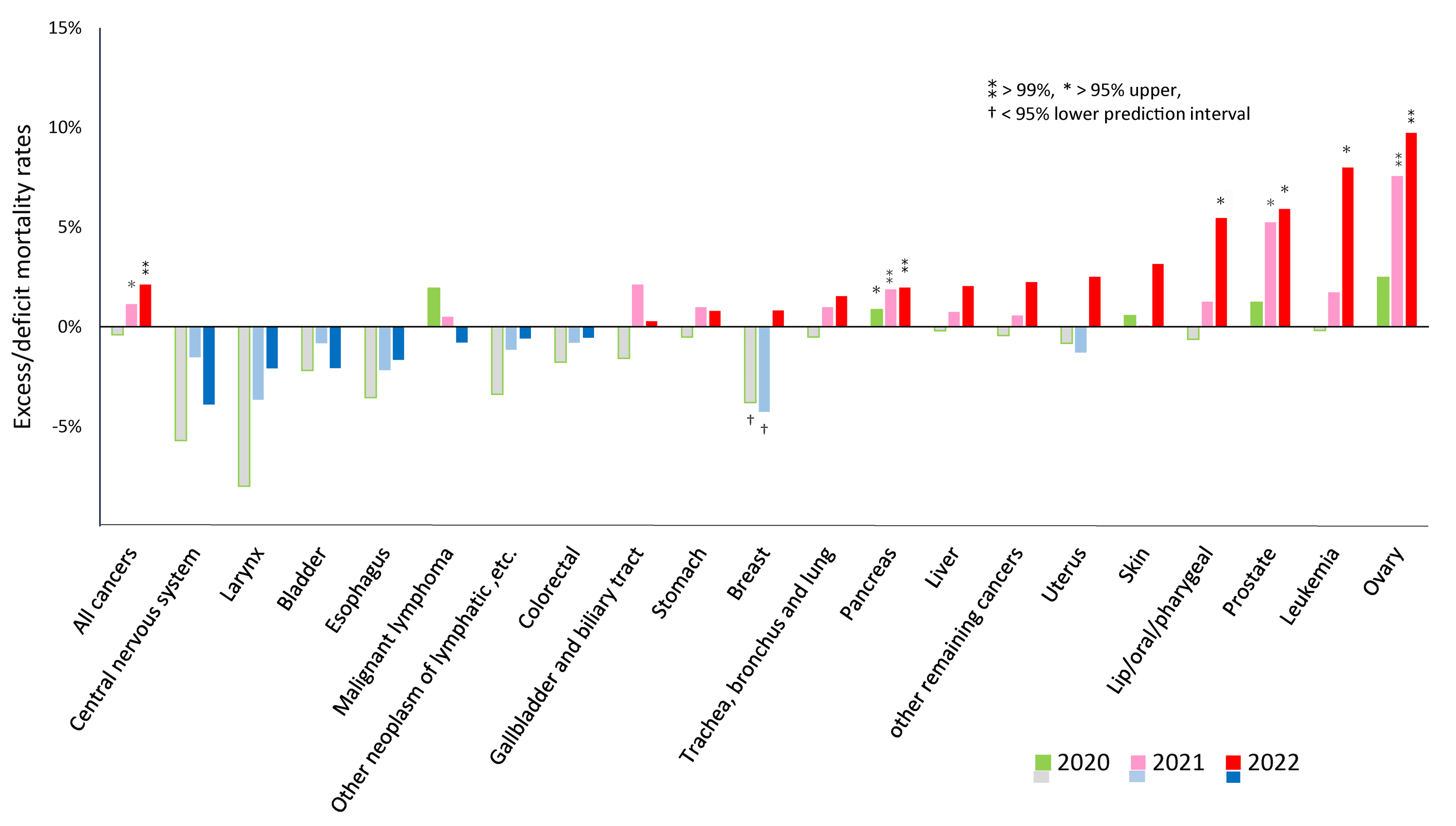
The study found particularly large increases in the AMRs of ovarian cancer, leukemia, prostate, lip/oral/pharyngeal, pancreatic, and breast cancers in 2022, all of which are estrogen or estrogen receptor alpha (ERα)-sensitive cancers.
“These particularly marked increases in mortality rates of these ERα-sensitive cancers may be attributable to several mechanisms of the mRNA-LNP vaccination rather than COVID-19 infection itself or reduced cancer care due to the lockdown. The significance of this possibility warrants further studies,” the authors wrote.
“Deaths from the most common types of cancer (lung, colorectal, stomach, and liver cancer) showed downward trends in the pre-pandemic period, and the rates of decrease slowed during the pandemic but remained within the 95% PIs.
“On the other hand, six of the 20 types of cancer (ovarian cancer, leukemia, prostate, lip/oral/pharyngeal, pancreatic, and breast cancer) had statistically significant excess mortalities in 2021, which increased further in 2022.
“Reduced cancer screening and healthcare due to the lockdown might increase deaths for any type of cancer. Still, the significant increases in mortalities for six specific cancer types were unlikely to be explained by a shortage of healthcare services.”
The researchers referred to previous studies showing that the mRNA-LNP vaccines “may pose the risk of development and progression of cancer” and case reports of “cancer developing or worsening after vaccination” that discussed possible causal links between cancer and the vaccines.
Factors that could contribute to the involvement of the mRNA-LNP vaccines and in increasing cancer AMRs include the thrombogenic effects of the spike protein and the lipid nanoparticle, the suppression of cancer immonosurveillance, and cancer development by the vaccines, according to the study.
The researchers concluded:
- On thrombogenic effects: “Findings suggest that the COVID-19 mRNA-LNP vaccine poses a risk of thrombosis in individuals with cancer and might explain the excess mortalities after mass vaccination.”
- On suppression of cancer immunosurveillance: “Findings might explain excess mortality for all cancers, especially excess deaths for pancreatic cancer and breast cancer in our study”
- On cancer development by vaccine: “Concerns about increased cancer risk in ERα-sensitive cells in mRNA-LNP SARS-CoV-2 vaccine recipients … Accumulation of vaccine mRNA and reverse-transcribed DNA molecules in the cytoplasm could be expected to induce chronic autoinflammation, autoimmunity, DNA damage, and cancer risk in susceptible individuals”
In addition, the researchers noted that according to a large US study the number of Covid vaccines received is positively correlated with cumulative Covid infection rates.
“Susceptibility to COVID-19 infection after multiple vaccinations may be enhanced by antibody-dependent enhancement, immune imprinting, and immunosuppression,” the authors wrote.
“This can result in a risk of exposure to viral S-protein in addition to vaccine S-protein for the multiple-vaccinated.
“These data suggest a significant impact on vaccine recipients, including the large number of mRNA-LNPs that are injected, their rapid and widespread distribution particularly into specific organs, the amount of S-protein produced, its long persistence in the body, and increased susceptibility to infection.”
Image credit: Gibo M, Kojima S, Fujisawa A, et al. (April 08, 2024) Increased Age-Adjusted Cancer Mortality After the Third mRNA-Lipid Nanoparticle Vaccine Dose During the COVID-19 Pandemic in Japan. Cureus 16(4): e57860. doi:10.7759/cureus.57860
